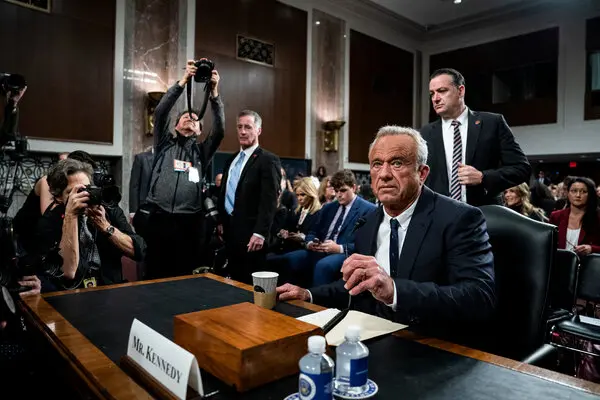The RFK Jr. confirmation vote has sparked widespread debate, marking a defining moment in U.S. public health policy. On February 13, 2025, the Senate confirmed Robert F. Kennedy Jr. as Secretary of Health and Human Services (HHS) with a narrow vote of 52-48. This decision, made under President Donald Trump’s administration, has drawn both praise and criticism, reflecting the deep political and ideological divides surrounding Kennedy’s appointment.
Kennedy, a prominent environmental lawyer and anti-vaccine activist, has long been a polarizing figure. His confirmation as HHS Secretary raises critical questions about the future of public health, vaccine policy, and the role of scientific consensus in government decision-making.
The Path to Confirmation
Kennedy’s journey to confirmation was anything but smooth. His nomination faced intense scrutiny due to his controversial stance on vaccines and his history of challenging mainstream health policies. During the confirmation hearings, Kennedy sought to reassure senators by pledging to uphold the integrity of the Centers for Disease Control and Prevention (CDC) and its advisory committee on immunization practices.
This promise played a pivotal role in securing support from key Republican senators, including Senator Bill Cassidy, who had initially expressed reservations about Kennedy’s qualifications. However, not all Republicans were convinced. Senator Mitch McConnell broke ranks with his party, voting against Kennedy’s confirmation. McConnell’s opposition highlighted the contentious nature of the RFK Jr. confirmation vote and underscored the deep divisions within the GOP over Kennedy’s suitability for the role.
Implications of Kennedy’s Appointment
The confirmation of Robert F. Kennedy Jr. as HHS Secretary carries significant implications for public health policy in the United States. With a budget exceeding $1.7 trillion, the HHS oversees critical areas such as pandemic preparedness, healthcare access, and vaccine development. Kennedy’s leadership could reshape these domains in ways that align with his controversial views.
Public Health Policy Under Scrutiny
One of the most pressing concerns surrounding Kennedy’s appointment is its potential impact on public trust in vaccines. As an outspoken critic of vaccination safety and efficacy, Kennedy’s past advocacy has often placed him at odds with mainstream health experts. Critics argue that his leadership could undermine efforts to combat vaccine hesitancy, particularly at a time when public confidence in vaccines is crucial for managing ongoing and future health crises.
Proponents, however, believe that Kennedy’s skepticism of established health policies could bring a fresh perspective to the HHS. They argue that his willingness to challenge the status quo could lead to more transparent and inclusive decision-making processes.
The Future of Vaccine Development
As HHS Secretary, Kennedy will play a central role in overseeing the FDA’s vaccine approval processes and ensuring that public health guidelines are grounded in robust scientific evidence. His commitment to maintaining CDC guidelines will be closely watched, as any deviation from established protocols could have far-reaching consequences.
The tension between Kennedy’s personal beliefs and the responsibilities of his role could create challenges in implementing effective health strategies. For instance, his past statements on vaccine safety could clash with the scientific consensus, potentially leading to conflicts within the department and beyond.
Political Ramifications of the RFK Jr. Confirmation Vote
The RFK Jr. confirmation vote is not just a health issue; it also carries significant political implications. Kennedy’s appointment reflects a broader shift within the Republican Party toward embracing figures who challenge established scientific norms. This trend could have long-term effects on public policy debates, particularly in areas like climate change, healthcare, and scientific research.
Senate Democrats were vocal in their opposition to Kennedy’s confirmation, warning that his leadership could hinder scientific progress and erode public trust in health institutions. Their concerns highlight the growing anxiety over how political affiliations influence critical health decisions.
Conclusion
The RFK Jr. confirmation vote represents a watershed moment in American politics and public health policy. As Robert F. Kennedy Jr. assumes the role of HHS Secretary, his ability to navigate the complexities of health governance will be closely scrutinized. Balancing his controversial views with the responsibilities of leading a department that impacts millions of lives will be no small feat.
Kennedy’s tenure will undoubtedly shape the future of public health in the United States, for better or worse. As the nation watches this unfolding chapter, one thing is clear: the debate over his confirmation is far from over.
Share your thoughts on the RFK Jr. confirmation vote in the comments below!
